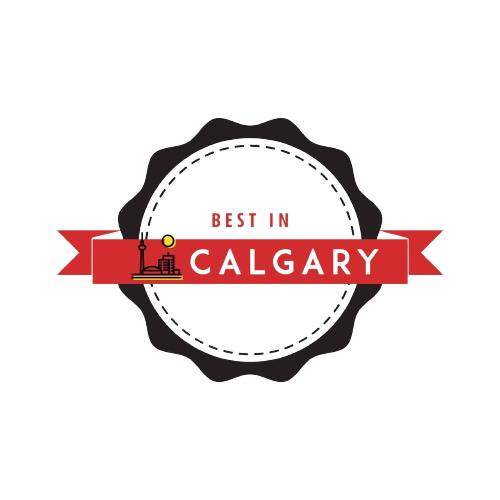Alcohol and Drug Addiction Treatment in Calgary
If you think you or someone you love may be experiencing an addiction or are seeking treatment in Calgary for an alcohol use disorder or drug use disorder, we can help. The following page provides some general information about alcohol and drug use disorders to help you get started, but please feel free to contact us for further information at the phone number above if you have questions or would like to book an appointment.
What is Addiction?
There are many misconceptions about what an addiction is. First, let
me say a few things about what it is not. Common misconceptions about
addiction can be found in the type of statements that people say to make
the case that they are not addicted. These include: "I don't consume
alcohol or use illicit drugs every day." "I can--and do--stop using for
periods of time." "I don't use or drink alone." "My drinking or using
patterns are no different from that of my friends." "I'm not hiding it. I
only drink on social occasions."
In my experience as an
addictions counsellor, I have heard all of these
statements used at one point or another to rationalize drinking or using
patterns that are, in fact, problematic. Addiction is not defined by
how frequently one uses, how much one uses at a time, how much one uses
overall, when one uses, or who one uses with. More correctly, none of
these factors, by themselves, are indicators of an addiction, although
all of them are, in fact, taken into consideration when looking at the
big picture.
So, then, what is an addiction? One definition of addiction, is as follows:
A Definition of Addiction
A long-term pattern of repeated use of a substance in such a manner as to cause or exacerbate harmful consequences in any domain of one's life - physical, emotional, relational, legal, spiritual, financial -- and, despite the accumulating negative consequences of using the substance, the person continues to use it.
As you can see, this definition starts to get at the heart of addiction -- repeated use of a substance despite evident and repeated negative consequences.
First, there is an element of repetition. In other words, there has to be a pattern of use that leads to harm. If you go overboard on how much you drink once or twice a year and do something while drinking that you regret later, that, by itself, does not mean you are addicted. But if you've been drinking heavily, or binging, every month, or every two weeks, or weekly, or at some other regular interval for at least the past twelve months, and on many of those occasions you feel guilty about it afterward, or there is damage to your relationship from it, or you end up doing something you regret, then that might be a red flag.
Second, there is an element of
harm involved. You and your spouse might fight more destructively when
you're drinking, for example. You might experience blackouts. You might
miss important obligations because you were drinking or hungover. You
might become more aggressive with others. Other harmful consequences
include giving up important recreational activities with your family,
breaking the trust of one's spouse or partner, not taking care of one's
body, feeling guilty and ashamed about one's drinking or using,
experiencing legal problems, underperforming at work, or feeling awful,
depressed, irritable or anxious the next day.
Third, despite the consequences, you continue to drink or use. Think about it this way. If a person drank socially, and on occasion they consumed too much alcohol and encountered some trouble because of it, they would say, "I'm not doing that again," and they would change something about their behavior so as to prevent further negative consequences of their drinking. And they would most likely be successful.
But someone who is addicted cannot do this, or cannot do this consistently, even when they try. Sooner or later, despite their efforts to control or prevent the harm, they end up consuming too much of the substance again. This happens again and again. Not necessarily every day, and not necessarily every time, but regularly and repeatedly, it happens enough that the harm continues to pile up over time.
Next: Part 2 of 3: How Can I Know if My Alcohol or Drug Use is a Problem?
Or Click Here to Expand All Three Parts of This Article on One Webpage
Recommended Reading
by Harry Haroutunian
An excellent resource on understanding treatment of substance addiction. I especially like the chapter on the Twelve Steps of Alcoholics Anonymous. In this chapter, the author describes each Step in detail, including the principles and potential pitfalls of each step, as well as his own simplified version of the meaning of each step. Dr. Haroutunian rewords Step One, for example, "We admitted we were powerless over alcohol -- that our lives had become unmanageable" to "There is a power that wants to kill me." Step Two, "Came to believe that a Power greater than ourselves could restore us to sanity," becomes "There is a Power that wants me to live." Includes a chapter on the high functioning addict, what to expect in recovery, a discussion on abstinence vs. harm reduction, a discussion of the distinction between spirituality and religiosity, a description of AA meetings, and more. A very good introduction to the world of addiction recovery.
by Katherine Ketcham and William F. Asbury
Much of what this book is about could be described by the phrase found on the back cover: "Alcoholism is a disease. It's time we started treating it like one." In the first half of this book, the authors describe the science behind the neurobiology of alcohol addiction, how alcohol affects the brain and the body, along with a comprehensive description of the early, middle and late phases of alcoholism. The second half of the book includes chapters on inpatient treatment, relapse prevention, counselling for co-morbid issues, spirituality and nutrition. It's a bit dated now, but its still very informative and one I would recommend. The author, Katherine Ketchum is also author of Under the Influence, considered a classic in the field.
Where Can I Get More Information?
The following links lead to online resources that may help further:
Alcoholics Anonymous
Official site of Alcoholics Anonymous World Services Inc..
What its Like to Attend Your First Meeting
Here is an excellent online article that addresses one of the most common psychological barriers to attending AA: anxiety about attending your first meeting. This article, produced by professionals at Futures Palm Beach, can help you feel better prepared with an understanding of what to expect at your first and subsequent meeting(s) and helps to dispel some of the common myths about attending AA.
Evolution Health Care for Everyone
An
online support group providing help to those who are seeking to quit or
cut down on their drinking. One helpful resource on this site is an
online questionnaire you can use to evaluate your drinking. This is the
same one used by the Centre for Addiction and Mental Health (see below).
I prefer the final report format on this site, however, as it provides a
little more information. An excellent resource with which to evaluate
your drinking.
Alcohol Help Center 2.0 Links and Resources
Check Your Drinking Assessment Online Questionnaire
American Society of Addiction Medicine
An
excellent educational resource, information rich, written in a strong academic style, outlining what addiction is, including the characteristics, neurobiology and genetic components of
addiction. The American Society of Addiction Medicine and its Canadian counterpart the Canadian Society of Addiction Medicine both offer comprehensive online information (see the "Research and Treatment" menu of the navigation bar at asam.org) to both addiction professionals and the public.
Centre for Addiction and Mental Health
Canada's leading addiction and mental health teaching hospital.
CAMH Articles and Resources
Information about Drug and Alcohol Addiction
Evaluate Your Drinking
Information about Alcohol, Other Drugs, and Driving
Low-Risk Drinking Guidelines
Dealing with Drinking: How to Quit or Cut Down
Addiction Center
This is another excellent site filled with articles, resources, and information on addiction. It is also a good site to find out about treatment centers available near you.
Recovery Village
The Recovery Village provides comprehensive alcohol and drug rehab programs. Their website, here, is a wealth of information on alcohol and drug addiction and treatment, inpatient and outpatient programs, co-occurring disorders, and so much more.
To Book an Appointment
Just call us (403) 255-8577 or use our easy online scheduler here.
If you have any questions or would like to contact us by email, you can complete a brief confidential contact form here. Once you submit the contact form, a Cobb & Associates intake staff member will respond as soon as possible.
The Calgary Couples Counselling Centre (a subsidiary of Cobb & Associates Inc.) is located in southeast Calgary (near Leons and Trail Appliances on 11th Street SE). Please click here for our full address and a map to our location. We are currently accepting new clients and warmly welcome self-referrals and referrals from physicians and other professionals.
We appreciate your interest in our services and hope this information has been helpful to you. Please do not hesitate to call if you have any questions.
Home | Return to Counselling Services
External Content and Diagnosis Disclaimer: Cobb & Associates Inc. gives no direct or implied assurance that the content on an any external websites listed on this page is 100% accurate or credible. This determination must be made by individual consumers of online information. In addition, the information on this page is intended for educational purposes only and is not meant to be used for diagnosis or treatment. If you suspect that you are experiencing the type of difficulties described in this article, we strongly advise that you consult with a health professional.
Affiliate Disclaimer: Some of the links to resources listed on this site are affiliate links, including the resource listed on this page. This means that if you click on a link pointing to a vendor on this page and you subsequently purchase any product from that vendor, Cobb & Associates Inc. will receive a percentage of that sale. Please know that we will only review and recommend products that we feel are of high quality and value to the reader. If any product we find on the internet is not of high quality it will not be reviewed on this site. Cobb & Associates was not offered this product for free in exchange for a review. Affiliate commissions are one method we use to offset marketing costs and are not a significant source of income for Cobb & Associates.










